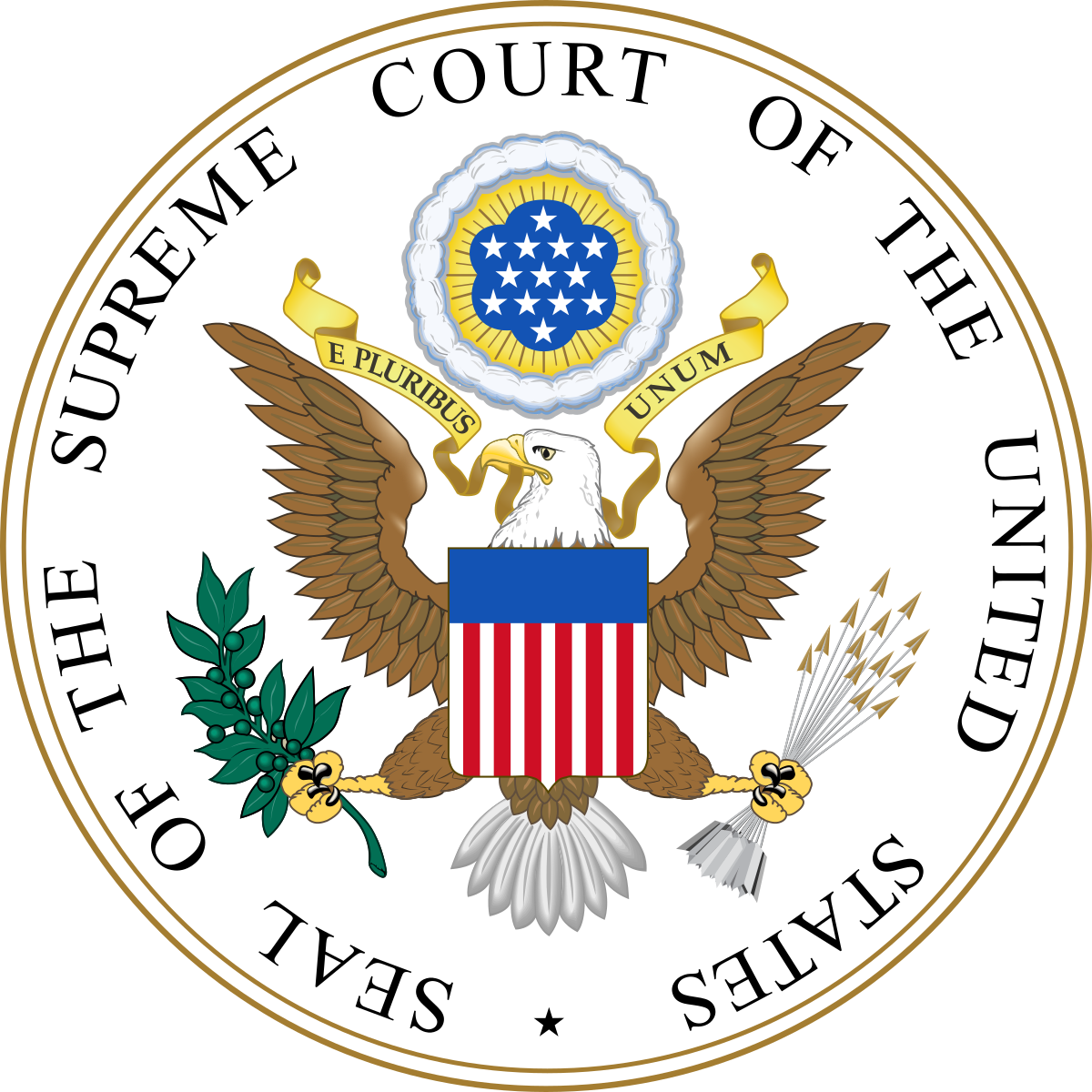*Published with the generous permission of David Pepper. Read and watch his excellent work at Pepperspectives.
Editor's note: In light of this week's SCOTUS ruling in Moore v. Harper, we're republishing David's important piece from Dec. 2022 that clearly lays out both the case and the stakes. This case is far from the only or last effort by the GOP to end American democracy.
By David Pepper
If it were a football game, they would’ve thrown a flag for unnecessary roughness.
If it were a soccer game, it would’ve earned at least a yellow card.
But since this was in a court of law, I’ll just say it’s the most savage, if entertaining, legal brief I’ve ever read.
It’s also important in key ways.
First, the brief was filed in the most important case in front of the US Supreme Court this term, Moore v. Harper. Next, almost every one of its 33 pages exposes what an ahistorical, rogue, and dangerous theory the proposed independent state legislature doctrine is. Finally, and perhaps most eye-opening: it was co-written by the co-founder of the Federalist Society. Yes, that Federalist Society. The same Federalist Society that Donald Trump empowered to choose its Supreme Court nominees, three of whom will hear this case.
The Rogue “Theory”
The simple background of Moore v. Harperis that 1) North Carolina Republicans gerrymandered the state’s Congressional map, 2) the North Carolina Supreme Court struck that map down as violating the state’s constitution and ordered a new map, and 3) the North Carolina GOP doesn’t want to follow that order.
So their argument in Moore v. Harper is that they don’t have to. They contend that they can do whatever they want, North Carolina Supreme Court be damned.
(Ohio readers will recognize all this—but our Ohio GOP and legislative leaders simply ignored the Court seven times without making a legal argument or seeking permission).
So how can North Carolina make the gobsmacking argument that it can do whatever it wants, regardless of the NC Supreme Court or the state’s constitution?
This is where the “independent state legislature” (ISL) theory comes in. The theory claims that the US Constitution gives state legislatures an unchecked ability to regulate elections due to what’s called “the Elections Clause” clause (Art. 1 Section 4 of the Constitution): “The Times, Places and Manner of holding Elections for Senators and Representatives, shall be prescribed in each State by the Legislature thereof…”
That’s right. That simple clause is the entire argument of those advancing the “independent state legislature” theory: one sentence, hiding in plain sight for centuries, suddenly means legislatures can do whatever they want when it comes to federal elections. No state constitutional limitations. No court review. No check by even the people themselves.
My Reaction: But see Rucho
My first response to the argument is that it would so destroy democratic governance and the rule of law in states, that it flies in the face of the Guarantee Clause of the Constitution (see the video above for a full explanation).
But having studied and taught the long, frustrating line of gerrymandering cases, one recent Supreme Court opinion also came to mind when I first read the argument.
The case is Rucho v Common Cause, from 2019, which also arose out of a North Carolina gerrymandering dispute. As it always does, the Court declined to get involved in ending that gerrymander. But never fear, SCOTUS reassured America that states have the power to curb gerrymandering, and even cited concrete examples in their opinion:
“The States, for example, are actively addressing the issue on a number of fronts. In 2015, the Supreme Court of Florida struck down that State’s congressional districting plan as a violation of the Fair Districts Amendment to the Florida Constitution. League of Women Voters of Florida v. Detzner, 172 So. 3d 363 (2015)…Provisions in state statutes and state constitutions can provide standards and guidance for state courts to apply.”
That’s right, only four years ago, the US Supreme Court explicitly wrote that “state courts” were the institutions to “apply” standards set forth by state statutes and state constitutions. That alone is a wholesale rejection of the absurd legal theory (ie. that state courts have no role to play).
Guessing those words were written by a liberal Justice?
Guess again.
The opinion in Rucho was authored by Justice Roberts and signed by Kavanaugh, Thomas, Gorsuch, and Alito. Which means that for North Carolina to prevail in Moore v. Harper, three of these five would have to wholly reverse reasoning they approved only four years ago.
So Rucho poses a problem for North Carolina’s radical theory.
But it’s nothing compared to the arguments in that savage brief I mentioned.
The Amicus Brief.
The first shocker is who wrote it. Start with two legal heavyweights whose work all nine Justices would know: Akhil Amar, a former professor of mine who has published an article or chapter on virtually every clause of the Constitution, and his brother Vikram, also a professor and law school dean. And the third is Steven Calabresi, a professor best known for having co-founded the Federalist Society. That’s right, the co-founder of that conservative legal group, who himself clerked for Robert Bork and Antonin Scalia, co-wrote a brief opposing the theory so many on the far right are hoping will give legislatures they control unfettered power .
And when I say oppose, I mean incinerate with a blow torch.
The Brief’s opening salvo is a doozy. In fact, I’ve never seen anything like it. They expose that a core North Carolina argument is based on…wait for it…a phony document.
Specifically, North Carolina dedicated pages of its Brief explaining that early drafts of the “Election Clause” referred more generally to “states”—but that language was later amended to refer to “state legislatures.” North Carolina argues that this switch is “crucial” evidence that the Founders intended that only legislatures play a role, not even subject to court review or that state’s constitution.
But there’s just one problem with this argument, according to the Amar/Amar/Calabresi Brief:
“The language Petitioners have trumpeted to this Court is phony. This language was no part of the real…Plan actually presented to the Philadelphia Convention….The true story appears in the short Appendix to Farrand’s Records that Petitioners cite but apparently never read to the end. Petitioners actually lead their brief with this fake and call this sham precursor to Article I, Section 4 “crucial[]” to their argument.”
Apparently, the “sham” historical document that North Carolina relies on first emerged in 1819 and has been widely debunked ever since, beginning with James Madison. And he would know!
The Brief explains why this error is so problematic in this scathing passage:
"This error is important both for its own sake and for a deeper point: Petitioners are not expert historians—alas, not even competent ones. We do not question their integrity but do challenge their reliability and credibility. Every Justice should exercise extreme caution before accepting any of Petitioners’ assertions[!]. Their brief is littered with major misstatements and half-truths. (We lack space to address them all, but highlight the biggest ones.)”
(“Approach Petitioners with caution” is not something I’ve ever seen before in a legal brief, and I’ve reviewed many).
With that red flag raised high, the rest of the Brief exposes the warned-about misstatements and half-truths:
1. They dismantle the historical arguments made by North Carolina, pointing out that state constitutions were (of course) treated as paramountto the legislatures they created, and thus state supreme courts had the power to enforce constitutional languageagainst wayward legislatures.
2. They show that at the Founding, most state constitutions did dictate to legislatures how to regulate elections, and those legislatures adhered to those state constitutional mandates
3. They make the point that simply referring to “legislatures” does not suggest those bodies enjoyed unfettered and unchecked power. After all, the word “Congress” is mentioned more than 60 times in the Constitution. But….
“Nobody thinks that the simple word “Congress” in the Constitution enables the federal legislature to ignore its master Constitution or its companion federal Supreme Court specially tasked with enforcing its master Constitution. So too, a state legislature is presumptively bound by its master state constitution and companion supreme court.”
There’s much more. You should read the the whole brief . It’s actually…brief, and a fun read.
But why, as a legal matter, is it so important? Because it cuts the conservative Justices’ legs out from under them, in two ways:
1. Remember, Rucho shows that five of the conservative members of the Court recently signed off on language wholly inconsistent with the independent state legislature theory.
2. Now, this brief arrives, penned by academics who are as expert as any in the nation on the history of the Founding and originalist interpretation of our Constitution. And it demolishes the independent state legislature theory with arguments the six conservatives claim to value most — originalism and textualism.
Walled in by the very type of Constitutional interpretation they utilize, the six Conservatives are left with nowhere to go. Which means one of two things:
Rucho and this Brief’s originalism have set the table for a potential surprise outcome in Moore v. Harper; or
If North Carolina does prevail on an argument anchored in historical misinformation, this Brief underscores that that would be a decision driven by raw political power and nothing else.




